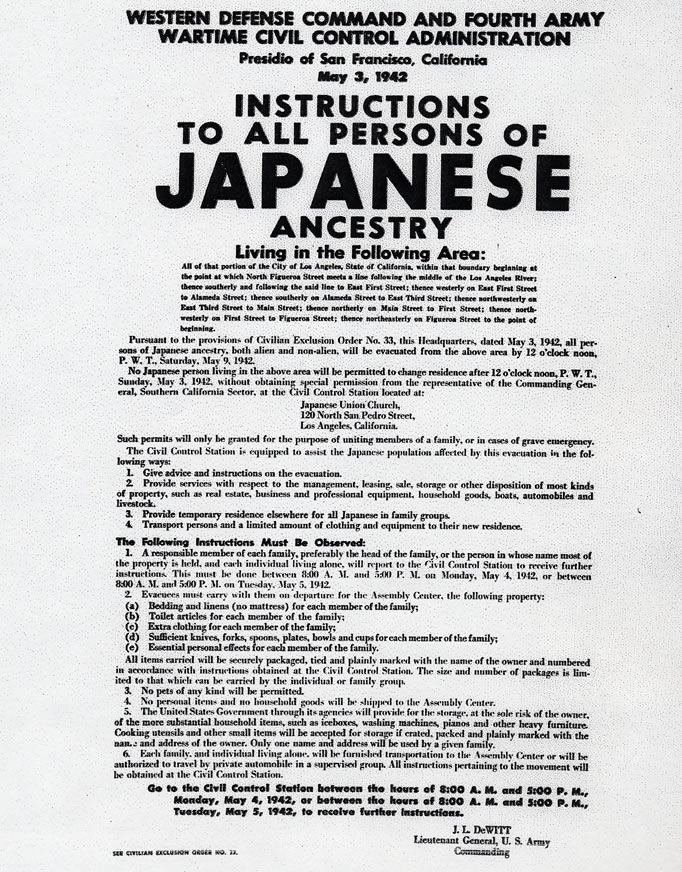
Instructions to All Persons of Japanese Descent, from the National Park Service’s Collection of Historical Documents.
In 1940, my grandma was a 21-year old maid in Los Angeles. She worked for a family the Jefferson Park neighborhood and her name is listed with theirs in the Census. By the time President Franklin Roosevelt issued Executive Order 9066, forcing those of Japanese descent into internment camps, she was married to my grandfather.
Under Executive Order 9066 issued 75 years ago today, more than 120,000 people were summarily rounded up and incarcerated following the bombing of Pearl Harbor. The crime? Looking like the enemy.
Until recently, it was hard to imagine it could ever happen again. Uprooted from your life with just days to gather your belongings and get your affairs in order. Students pulled out of schools, families losing businesses and farms along with their dignity, simply for being of Japanese descent. My grandparents, both American citizens, reported to the Santa Anita racetrack and were later shipped off to Jerome in Arkansas, two people among more than 120,000 whose rights were violated and their lives fundamentally altered. Because of an Executive Order, a Supreme Court and Congress who did nothing to stop it.
My grandma’s influence is all over this blog. I sat at her table almost daily from elementary school until I left for college. On that table, there were more American dishes than truly Japanese ones, though there was always shoyu and rice to go with whatever we were eating — whether it was chili or porcupine meatballs (gross!) or chicken and dumplings. Today I look back and wonder if in a bid to prove our American-ness, some of the Japanese food took a backseat.
I sat on her kitchen floor, under a pull-out cutting board and played grocery store, pulling cans from her cupboard and scanning them through an imaginary cash register. Campbell’s soup cans on the top left, tomatoes of all sorts on the top right, next to the Crisco. And in that cupboard, were cans of deviled ham and corned beef hash. In the fridge, Oscar Meyer hot dogs and bacon for fried rice. Recipes that are lists of ingredients, but everything is negotiable, add whatever you have, including ketchup. I never gave much thought to the fact that some of those foodways were born of the camp experience.
Today is a #DayofRemembrance, not just broadly for the injustices done in 1942, but also personally for my grandparents who were put in an untenable situation, who made the best of it because what else could you do? And after everything, they made it back to California and raised four kids.
The scars of internment are more subtle now, honed down over the generations, yet I’ve found myself saying things like, “Oh, even my grandmother was born here, so we’re really American.” As we’ve seen citizens protesting and the 9th Circuit Court put a hold on a Muslim ban, I know this time will be different. It has to be.
********************
Resources on the Japanese-American Internment:
Japanese American National Museum
Densho: the Japanese-American Legacy Project
Farewell to Manzanar by Jeanne Wakatsuki Houston
Enduring Conviction: Fred Korematsu and His Quest for Justice
Weenie Royale: Food and the Japanese-American Internment




